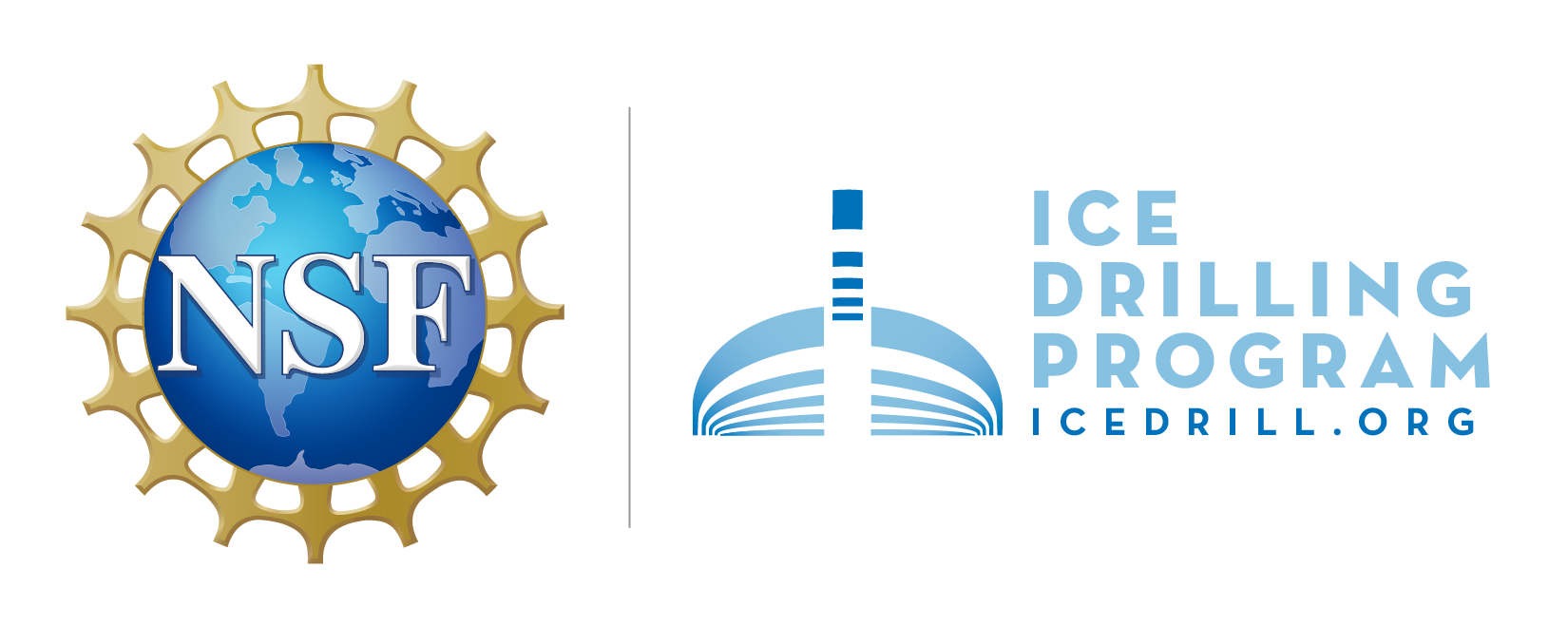Adaptation of the Winkie Drill for subglacial bedrock sampling
| Title | Adaptation of the Winkie Drill for subglacial bedrock sampling |
|---|---|
| Publication Type |
Journal Article
|
| Year |
2021
|
| Author(s) | Grant Boeckmann , Chris J Gibson, Tanner W Kuhl, Elliot Moravec, Jay A Johnson, Zachary Meulemans, Kristina R Slawny |
| Journal/ Publication |
Annals of Glaciology
|
| Volume |
62
|
| Issue |
84
|
| Pagination |
109-117
|
| Abstract |
The Winkie Drill is an agile, commercially available rock coring system. The U.S. Ice Drilling Program has modified a Winkie Drill for subglacial rock and ice/rock interface coring, as well as drilling and coring access holes through ice. The original gasoline engine was replaced with an electric motor though the two-speed gear reducer and Unipress hand feed system were maintained. Using standard aluminum AW34 drill rod (for 33.5 mm diameter core), the system has a depth capability of 120 m. The drill uses forward fluid circulation in a closed loop system. The drilling fluid is Isopar K, selected for favorable properties in polar environment. When firn or snow is present at the drill site, casing with an inflatable packer can be deployed to contain the drill fluid. The Winkie Drill will operate from sea level to high altitudes and operation results in minimal environmental impact. The drill can be easily and quickly assembled and disassembled in the field by two people. All components can be transported by Twin Otter or helicopter to the field site. |
| DOI |
10.1017/aog.2020.73
|
| File | |
| URL | |
| Special Collections | International Workshop on Ice Drilling Technology Series, 8th International Ice Drill Symposium |
| Categories | Englacial Debris/Rock Glaciers, Hydrofracture, Subglacial Access, Subglacial Till/Bedrock Drilling |
| Equipment | Winkie Drill |
| Citation | Grant Boeckmann , Chris J Gibson, Tanner W Kuhl, Elliot Moravec, Jay A Johnson, Zachary Meulemans, Kristina R Slawny ( 2021 ) Adaptation of the Winkie Drill for subglacial bedrock sampling. Annals of Glaciology , 62 , 84 , 109-117 . doi: 10.1017/aog.2020.73 |
| Lead Author |
